It’s Day 3 of our horror movie series of The Kasturi/Files on Speculative Chic, with commentary, arguments, and cocktail recommendations from Sandra Kasturi and Gemma Files! Shockingly, we’re talking about a really recent film today! To which we should add: SPOILERS AHEAD.
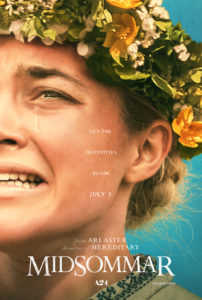 Gemma Files: It’s hard to dissect someone’s oeuvre when they’ve literally made two feature-length films thus far, yet here we are sort of doing that with Ari Aster’s follow-up to Hereditary, Midsommar (2019). I remember right after the former came out, when the “elevated horror” label started getting bandied about yet again, and Aster wasn’t helping by claiming that the fellow filmmaker he felt most influenced by was Ingmar Bergman. Cut to July 2019, and the release of Midsommar, which in hindsight/on paper looks a bit like a Saturday Night Live skit stretched to almost three hours long — it starts in Hereditary territory, with the shaky relationship between Dani and Christian, two equally passive-aggressive Millennials who both get that they aren’t particularly good for each other, but are kept from moving on by the fact that neither of them wants to be seen as “the bad guy” . . . the one who quit, the one who walked out, the one who broke the other’s heart. Just as Christian has alllllmost decided to take one for the team, however, Dani’s sister kills herself in as traumatic a way as humanly possible, giving Dani a Get Out of Jail Free Card that’s good for life.
Gemma Files: It’s hard to dissect someone’s oeuvre when they’ve literally made two feature-length films thus far, yet here we are sort of doing that with Ari Aster’s follow-up to Hereditary, Midsommar (2019). I remember right after the former came out, when the “elevated horror” label started getting bandied about yet again, and Aster wasn’t helping by claiming that the fellow filmmaker he felt most influenced by was Ingmar Bergman. Cut to July 2019, and the release of Midsommar, which in hindsight/on paper looks a bit like a Saturday Night Live skit stretched to almost three hours long — it starts in Hereditary territory, with the shaky relationship between Dani and Christian, two equally passive-aggressive Millennials who both get that they aren’t particularly good for each other, but are kept from moving on by the fact that neither of them wants to be seen as “the bad guy” . . . the one who quit, the one who walked out, the one who broke the other’s heart. Just as Christian has alllllmost decided to take one for the team, however, Dani’s sister kills herself in as traumatic a way as humanly possible, giving Dani a Get Out of Jail Free Card that’s good for life.
Sandra Kasturi: My reaction to Dani and Christian’s relationship was much the same — I too have been there and done that; so exhausting when both parties simply won’t say what they want out of fear of various things. So much easier to just say what you think, but most of us don’t figure that out til middle age, if ever. (I learned this lesson from Friends, of all things, when Phoebe was asked to help one of them move and replied, “Oh, I wish I could. But I don’t want to.” And I thought, holy shit, you can just say that? Life-changing.) Where was I? Oh yes. The toxic relationships one has in one’s twenties. We all know them; they’re so familiar and so uncomfortable to watch while other people are in their throes. I wanted to slap both Dani and Christian silly, which is a testament to the power of the writing and acting — you feel like you’re a voyeur, and not in a fun way. Maybe people in their twenties watching the film might react differently? Are we being jerks because of our age?
Gemma: I don’t know. Maybe I’m being a bit of an asshole here about Dani, whose perspective I certainly know intimately from former toxic relationships of my own — even before her tragedy she’s anxiety-driven, constantly remaking herself in hope of being what Christian “wants,” afraid to seem too passionate about anything; afterwards, she’s an understandable basket case. But as my good friend Michael Rowe points out, if this script were cis-swapped so that it was about three American women and their hot Swedish friend taking a girls’ trip to observe the midsummer rituals of the Swede’s home village and Dani was Danny, one of the girls’ clingy, stalkery boyfriend, who insisted on inserting himself into the mix because he was “owed” emotional support in a time of need . . . well, that’d be different, wouldn’t it? Very different indeed.
 Sandra: I don’t know that you are being an asshole; my reaction as you can see was much the same. And Michael was so right about a cis-swapped version of this movie. If only The Descent had had an asshole boyfriend along in the caves, it would have made the perfect counterpoint!
Sandra: I don’t know that you are being an asshole; my reaction as you can see was much the same. And Michael was so right about a cis-swapped version of this movie. If only The Descent had had an asshole boyfriend along in the caves, it would have made the perfect counterpoint!
Gemma: At any rate, here Aster decides to follow up Dani’s awful kick-off by going full Bergman: Christian, his fellow anthropology thesis competitor Josh, and constantly-vaping idiot friend Mark are invited to Harga, Sweden by international student Pelle, who’s returning home after years of study abroad, and Dani makes sure she doesn’t get left behind. So they arrive en masse at the height of the Midnight Sun, rapidly get/stay high, and become unable to figure out if their hosts are just the most crazily pleasant, inclusive and attractive bunch of neo-pagans ever or whether (just perhaps) something REALLY REALLY WEIRD might (what are the odds) be going on behind it all, or even (heaven forbid) right in front of their smugly too-hip faces. Hijinks ensue!
Sandra: Hijinks indeed! I love how Aster lulls us (sort of) into believing his sunny mythology, even though the opening of the movie is set in winter (which I thought was perfect and sly) with that eerie Swedish music playing, and then of course the murder/suicide, telegraphing that things will go even more really wrong. But then, when you get into that crazy midsummer sunshine, you think maybe it’ll be okay? Well, except the music still seems ominous. The film is so gloriously trippy, and everyone is so blonde and attractive, and living the good life, that you kind of want to believe it. Even though you know you’re entering Twilight Zone territory. (“It’s a good life.”) I also loved the nods to The Wicker Man (original, accept no substitutes) and The Ruins, and even things like Insomnia, where perpetual light can make you crazy.
Gemma: On its face, Midsommar is modeled pretty overtly after the pattern set by ur-Folk Horror film The Wicker Man (1973, directed by Robin Hardy). Our characters enter an isolated, insular rural society whose beliefs are very different from their own, and gradually realize that they may have been enticed there for nefarious purposes. Of course, the difference here is that Christian and his friends are utterly modern, secular people, unlike poor doomed Constable Howie; they enter thinking that they can participate halfway, while observing, without commitment. The only one of them who seems able to enter into the true feelings of the Harga is Dani, who’s been efficiently pared of any emotional armor she might have ever possessed — increasingly lost, betrayed, freaked out, and bad-tripping her way through the landscape, she ends up latching onto the Harga like they’re her next relationship, her “forever home.” They make her feel seen, feel held, just like Pelle implied they would. But are they trustworthy? Is she? Will either side really end up getting what they want?

Sandra: Well, Dani kind of does get what she wants at the end (without citing spoilers), but I couldn’t help but want the movie to continue and see what happened over the next year/years. And I watched the director’s cut, at two-and-a-half hours, and I still wasn’t ready to leave that world! I was also mesmerized by the frank sexuality, which wasn’t portrayed as titillating really, just very . . . out there. It’s a tongue in cheek (metaphorically speaking) take on the prudishness of Americans vs. those swingin’ Scandis. And I am always a sucker for stories that reverse the “city bad, country good” paradigm, and Midsommar does this in spades. Country: very very bad indeed. But, hey — if what you’re getting is total happiness and prosperity for another hundred years, what’s a few, er, sacrifices?
Cocktail: Swedish Strawberry Punch
Sandra: Well, it says it’s Swedish. And those strawberries . . . just like those Gentle Swedes greeted the naïve tourists with, in Midsommar! I’m sure everything will work out JUST FINE.
I confess I found this recipe on the interwebs, but it’s by Joel Persson, whose last name sounds a little Swedish, so maybe it really is? Regardless, it sounds deelish. Confession #2: I absolutely adore how some people talk about food and drink, and any recipe that requires me to give a sprig of mint “a gentle clap” is a-OK in my book.
 Ingredients
Ingredients
- 100 ml (3.3 ounces) Vodka
- 100 ml (3.3 ounces) Lime Juice
- 100 ml (3.3 ounces) Elderflower Cordial (or 50 ml (1.5 ounces) simple syrup)
- 6 Strawberries, quartered
- 3 Slices of Cucumber
- 10 Mint Leaves
- 2 Bottles of Rekorderlig Strawberry-Lime Cider
Garnish
- Mint Sprigs
- Strawberries
- Ice
Instructions
- Tear the mint and give it a gentle clap.
- Mix all ingredients together over ice in a pitcher or punch bowl.
I think this recipe would be just as tasty if you left out the vodka and other boozy elements for a non-alcoholic version. Maybe sub in some sparkling cider and some rose or orange water.
Confession #3: I haven’t actually made this yet. My strawberries went off and my cucumber looked a bit squishy. Sigh.
Book Recommendations
Sandra: Moominsummer Madness by Tove Jansson: Okay, it’s Finnish, not Swedish, and it’s not horror, but it is trolls, and they’re adorable. And it has that Scandinavian/Baltic kookiness that is always on the edge of going wrong, even when it’s charming.
Also: Eutopia: A Novel of Terrible Optimism by David Nickle, because it’s also about small towns which appear perfect . . . and then are emphatically not.
Gemma: Thomas Tryon’s Harvest Home is, of course, the standard when it comes to bucolic Year Royalty antics, though set somewhat closer to home — in Connecticut, to be exact.
My other folk horror staples, however, would be Arthur Machen’s brilliant short “The White People“ and H. Russell Wakefield’s “The First Sheaf,” both of which perfectly evoke the horror which results when (as W.H. Auden says, in his poem “The Witnesses”):
the green field comes off like a lid
Revealing what was much better hid:
Unpleasant.
 Sandra Kasturi is the publisher of ChiZine Publications, winner of the World Fantasy, British Fantasy, and HWA Specialty Press Awards. She is the co-founder of the Toronto SpecFic Colloquium and the Executive Director of the Chiaroscuro Reading Series, and a frequent guest speaker, workshop leader, and panelist at genre conventions. Sandra is also an award-winning poet and writer, with work appearing in various venues, including Amazing Stories, Black Feathers: Dark Avian Tales, Prairie Fire, several Tesseracts anthologies, Evolve, Chilling Tales, ARC Magazine, Taddle Creek, Abyss & Apex, Stamps, Vamps & Tramps, and 80! Memories & Reflections on Ursula K. Le Guin. She recently won the Sunburst Award for her short story, “The Beautiful Gears of Dying,” in the anthology The Sum of Us. Her two poetry collections are: The Animal Bridegroom (with an introduction by Neil Gaiman) and Come Late to the Love of Birds. Sandra is currently working on another poetry collection, Snake Handling for Beginners, a story collection, Mrs. Kong & Other Monsters, and a novel, Wrongness: A False Memoir. She is fond of red lipstick, gin & tonics, and Idris Elba.
Sandra Kasturi is the publisher of ChiZine Publications, winner of the World Fantasy, British Fantasy, and HWA Specialty Press Awards. She is the co-founder of the Toronto SpecFic Colloquium and the Executive Director of the Chiaroscuro Reading Series, and a frequent guest speaker, workshop leader, and panelist at genre conventions. Sandra is also an award-winning poet and writer, with work appearing in various venues, including Amazing Stories, Black Feathers: Dark Avian Tales, Prairie Fire, several Tesseracts anthologies, Evolve, Chilling Tales, ARC Magazine, Taddle Creek, Abyss & Apex, Stamps, Vamps & Tramps, and 80! Memories & Reflections on Ursula K. Le Guin. She recently won the Sunburst Award for her short story, “The Beautiful Gears of Dying,” in the anthology The Sum of Us. Her two poetry collections are: The Animal Bridegroom (with an introduction by Neil Gaiman) and Come Late to the Love of Birds. Sandra is currently working on another poetry collection, Snake Handling for Beginners, a story collection, Mrs. Kong & Other Monsters, and a novel, Wrongness: A False Memoir. She is fond of red lipstick, gin & tonics, and Idris Elba.
 Formerly a film critic, journalist, screenwriter and teacher, Gemma Files has been an award-winning horror author since 1999. She has published two collections of short work, two chap-books of speculative poetry, a Weird Western trilogy, a story-cycle and a stand-alone novel (Experimental Film, which won the 2016 Shirley Jackson Award for Best Novel and the 2016 Sunburst award for Best Adult Novel). Most are available from ChiZine Publications. She has two new story collections from Trepidatio (Spectral Evidenceand Drawn Up From Deep Places), one upcoming from Cemetery Dance (Dark Is Better), and a new poetry collection from Aqueduct Press (Invocabulary).
Formerly a film critic, journalist, screenwriter and teacher, Gemma Files has been an award-winning horror author since 1999. She has published two collections of short work, two chap-books of speculative poetry, a Weird Western trilogy, a story-cycle and a stand-alone novel (Experimental Film, which won the 2016 Shirley Jackson Award for Best Novel and the 2016 Sunburst award for Best Adult Novel). Most are available from ChiZine Publications. She has two new story collections from Trepidatio (Spectral Evidenceand Drawn Up From Deep Places), one upcoming from Cemetery Dance (Dark Is Better), and a new poetry collection from Aqueduct Press (Invocabulary).

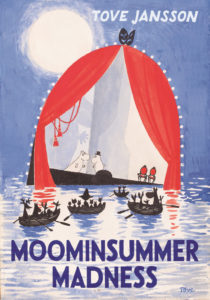
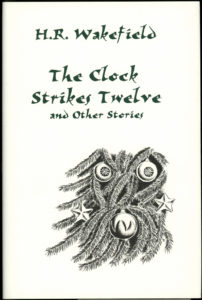
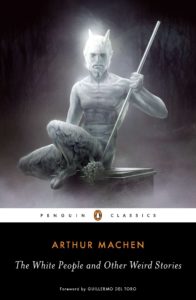
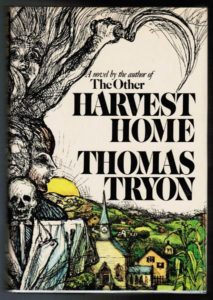
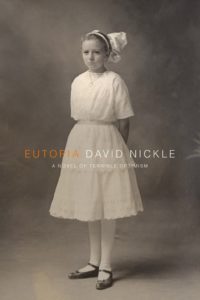
Was expecting some kind of reference to Midsomer Murders and their episode set in Copenhagen… but love this series of discussions, and the book recommendations. Can’t wait for the rest of the season to roll in!
I LOVE Midsomer Murders! But it’s not a genre show, so, alas, does not fall into the discussion this October. A topic for another blog, perhaps!
I’m both looking forward to watching this movie and dreading it. I really dug HEREDITARY until the very end, and I was left with a WTF in a bad way, not a good way. :-/
So we watched it last weekend. It was really compelling, and the end didn’t throw me out like HEREDITARY did. I didn’t quite find Dani obnoxious: the actress herself did an amazing job showing her emotional pain, especially when she’s trying to suppress it. The dialogue too was on point, and I was thrilled to see William Jackson Harper in this, as I’ve only ever seen him The Good Place and I adore him.
But yeah, back to Dani. I never quite picked up on the “she changes herself for her man,” and I didn’t quite interpret her addition to the trip the same way you did. I don’t think she invited herself so much as Christian just invited her to end the conversation, because he doesn’t have the backbone to end things, nor does he have the backbone to really stand on his two feet. Their argument post-party was masterful: him getting defensive in a way that only exists when you know you’ve gone about something the wrong way and don’t want to admit it, and it forces the other person to apologize when you should be the one to apologize to begin with.
Anyway, I liked this. I thought the actor who played Christian could very well portray Chris Pratt’s younger brother in something, and I’m with you: I’d love to see how Dani is faring with her newfound family in a year or two.